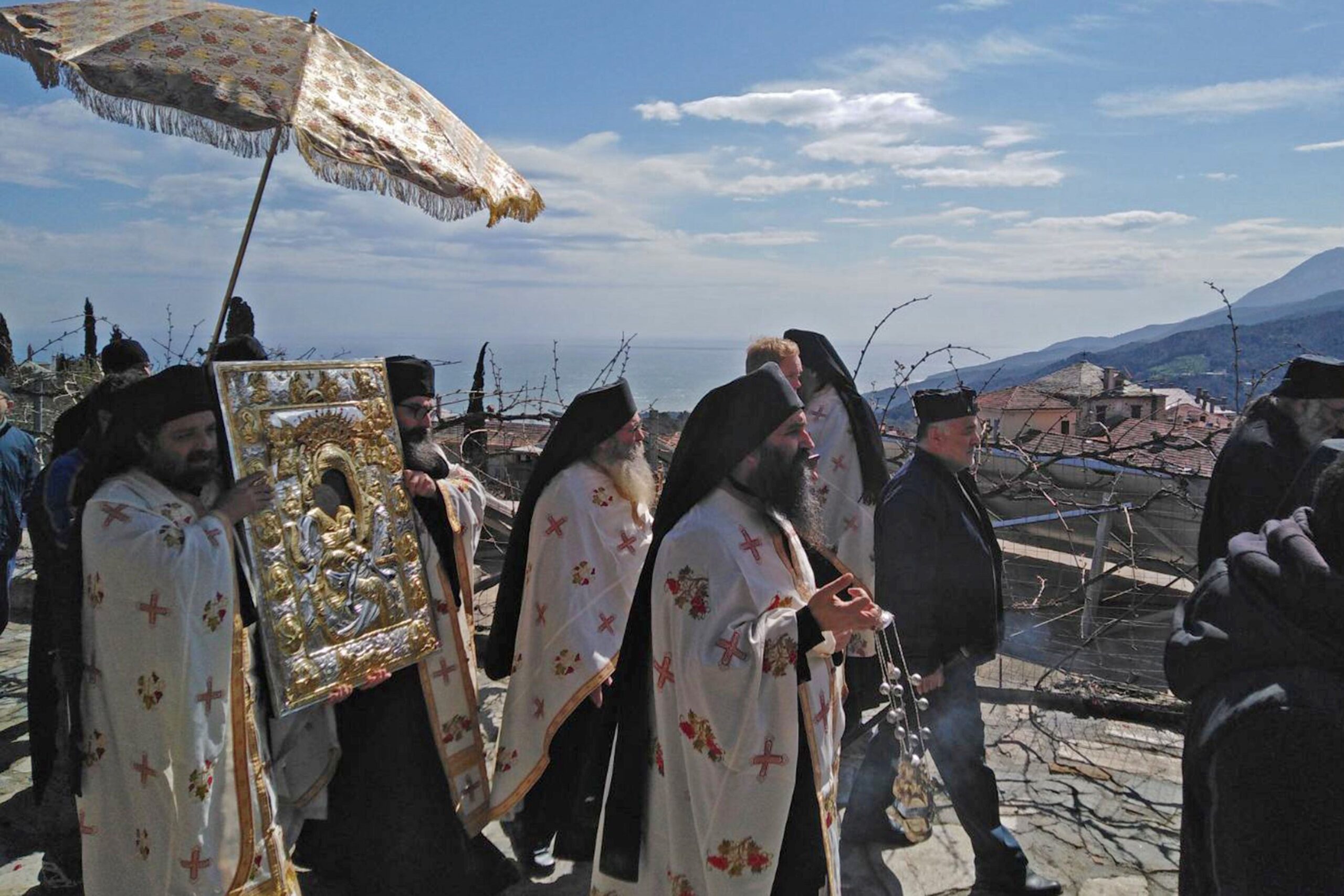Medieval Orthodox monastic rites and traditions on Mount Athos will soon acquire yet another trapping more associated with the 20th century: a modern supermarket.
The semi-autonomous monastic community located on a northern Greece promontory first emerged more than a millennia ago, yet only recently did the prospect of opening a supermarket appear.
The new store will offer some 3,000 products and will have only male employees, as Mount Athos is traditionally an all-male domain.
Permanent residents on the northern Greece peninsula are estimated to number more than 1,800 individuals, mostly monks. Another 1,000 work there on a permanent basis, while the venerable center of Eastern Orthodox monasticism hosts 150,000 pilgrims and visitors every year, all men.
The supermarket will operate in a former monastic quarters in the town of Karyes, the administrative capital of Mount Athos. The store will open on the ground floor of a newly renovated commercial center, which already possesses guest lodges, a restaurant and café, a physical therapy clinic, a shop selling religious items and an optical store.
Karyes also hosts a police precinct, a medical clinic, a post office, a bank, bakeries, a courier service, a tailor, a bookstore, various workshops, and various other shops.
The supermarket outlet, part of a national chain, will also offer products produced by the monasteries on Mount Athos.
This is the first time such an establishment will operate within the monastic community and the decision was met with mixed reactions, as some on the “Holy Mountain” regard it as a necessary addition for the needs of monks and pilgrims alike, while some elders questioned whether such a commercial establishment is appropriate in what many Orthodox Christians consider as hallowed ground.
At the same time, some monasteries engage in commercial activities by producing and selling eponymous products, including wines, spirits, olive oil, herbs, incense, candles and even organic beauty products. Revenues go towards the maintenance and renovation of their properties, and even to fund online ecclesiastical platforms.



